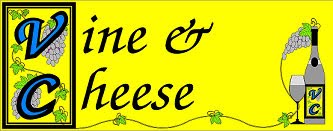Historically the creation of co-ops was an effort by farmers to re-invent themselves in response to bad economic times and the exploitation of agribusiness. The Great Depression in particular spawned both numbers and varieties of co-ops here and around the world. For farmers, organizing was a desperate attempt to survive collectively, a "strength in numbers" appeal to vulnerable property owners whose farms in themselves were often not highly valued.
There are many different kinds of co-ops and every agricultural society on earth has some form of farming organization that manages the collective interests of the group. What all forms of wine growing co-ops share is the pooling of the group's resources and the sharing of the cost of making and marketing their product. Essentially what is most often collectively bought is machinery and expertise. Unfortunately because of difficult economies and meager resources, co-ops got a reputation for making substandard products that weren't competitive with private ownership.
The most prevalent co-op model for most of the twentieth century was one that paid the farmers based on the weight of their produce and that makes sense. Historically that is the way the business was done. The quality of the product wasn't always primary for co-ops so the "substandard" bad rap may have been deserved. Unfortunately not only is a bad reputation difficult to change but in the co-op case it had repercussions for the business that bought from them. Retailers and restaurateurs became branded as substandard by their stocking of co-op wines.
For most of the twentieth century the co-op situation was what it was. But as the wine world evolved and the co-ops took notice of the profitability that better quality production merited they too realized they had to change. Quality had to be factored in. That meant lower yields (less weight) but higher prices for the better grapes. And it worked.
We were inspired to write about the subject after buying a case of fine white Italian wine. That case came with literature that was acknowledging their co-op fruit. It read like an apology so it was obviously bad marketing. The case of wine was here because it was good not because of where it was sourced. Since that purchase more high quality co-op wine has come into the store making us more confident than ever that co-op wine really is not only as good as any, it may be a better value than the estates!
Monday, September 10, 2018
Subscribe to:
Post Comments (Atom)




No comments:
Post a Comment